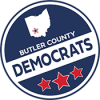Our nation’s political history began as opposition to the policies of eighteenth century
European monarchies. The American colonists considered these governments and officials to be
tyrannical and authoritarian. The Declaration of Independence, considered America’s mission
statement, pronounced to the world that such governments should derive “…their just powers from
the consent of the governed.” Principles such as the “inalienable” human rights to liberty and freedom
from oppression were values that would be the basis for our new and independent nation. Since it
was written in 1776, the Declaration of Independence has been recognized as a model and
inspiration for these values around the world.
The authors of the Constitution desired to rule themselves without being controlled by a
domestic dictator or by any foreign government and were committed to their vision of freedom and
opposed the creation of a government that resembled the monarchies of the day. The Constitution’s
emphasis on democratic rule begins with the phrase, “We the people…” stating clearly the role of
people over government.
“We the People of the United States, in order to form a more perfect Union, establish Justice,
insure domestic Tranquility, provide for the common defense, promote the general Welfare,
and to secure the Blessings of Liberty to ourselves and our posterity, do ordain and establish
this Constitution for the United States of America”.
Separation of Powers
The Constitution along with its 27 Amendments represents a unique approach to the
relationship between “we the people” and government. This relationship is defined and maintained by
the involvement of citizens in electing representatives that carry out the functions of the government
on their behalf. The Amendments to the Constitution enumerate the rights and freedoms of “we the
people” to be protected from the overreach of government. These rights and freedoms have been
extended over time to include groups that were not covered originally by the authors of the
Constitution.
The first three articles of the Constitution define the roles and responsibilities of the three main
branches of government: the Legislative, the Executive and the Judicial. Each branch of government
was designed to carry out specific functions at a federal level. The Legislative branch, Congress,
includes the House of Representatives and the Senate which write and pass laws. The Executive
branch, including the president and the cabinet, is charged with implementing and enforcing those
laws. The Judicial branch, including the Supreme Court and lower federal courts, interprets those
laws and determines whether they comply with the Constitution and its Amendments.
Checks and Balances
The separation of powers among the three branches allows for a system of checks and
balances to ensure that no one branch or elected official will become all powerful. A balance of
power between the branches of government is necessary to maintain a representative democracy or
what Abraham Lincoln called in 1863, “…a government of the people, by the people, for the people.”
This balance of power has shifted throughout our history but has held so far.

Over the years, presidential and Congressional powers have expanded through legislative
actions and Supreme Court decisions. Presidential executive power has expanded through frequent
use of Executive Action, orders issued by the president to manage operations of the federal
government without the consent of Congress. Congressional power has expanded its role of
oversight. It became essential through the years for Congress to have the concurrent power to
investigate as a means to enhance its ability to legislate and provide oversight.
As early as 1792, James Madison and four additional members of the constitutional convention
agreed that Congress needed to have the ability to investigate issues that might have been left to the
executive branch. Since then, Congressional actions supported by Supreme Court decisions have
confirmed the importance of Congress’s right to subpoena documents and witnesses from the
executive branch in order to fulfill its oversight role, protecting the rule of law and ensuring that no one
is above the law.
Our Oath
The Constitution is the basis of our government and of our way of life. Its application has
evolved and yet it has effectively preserved our democracy the past 230 years. Vigilant attention to
protecting the Constitution is needed to prevent a return to our authoritarian past and insure that our
democracy survives in the future. The Constitution provides that our allegiance should be given to its
principles and to the representative democracy it created. That is the reason why it stipulates that all
government employees and all members of the military upon entering service take an oath to
preserve, protect, and defend the Constitution of the United States. This oath is not a promise of
allegiance to a particular individual or group but faithfulness to the ideals of freedom, equality and
democracy. It is a promise made to and by “We the people…”

